CCG & TTCSP Co-host 5th China Global Think Tank Innovation Forum
January 18 , 2021
On November 24, 2020, the fifth Annual China Think Tank Innovation Forum was held in Beijing, organized by the Center for China and Globalization (CCG) and co-hosted by Think Tanks and Civil Society Program (TTCSP) of the University of Pennsylvania. The forum aimed to discuss the latest changes in the world, address pressing issues for global think tanks, explore innovative models for the sustainable development of think tanks, and offer policy recommendations for China and the international community. More than 200 think tank experts participated in the forum through online and offline channels, and 2.6 million viewers from around the world watched the live broadcast of the forum.
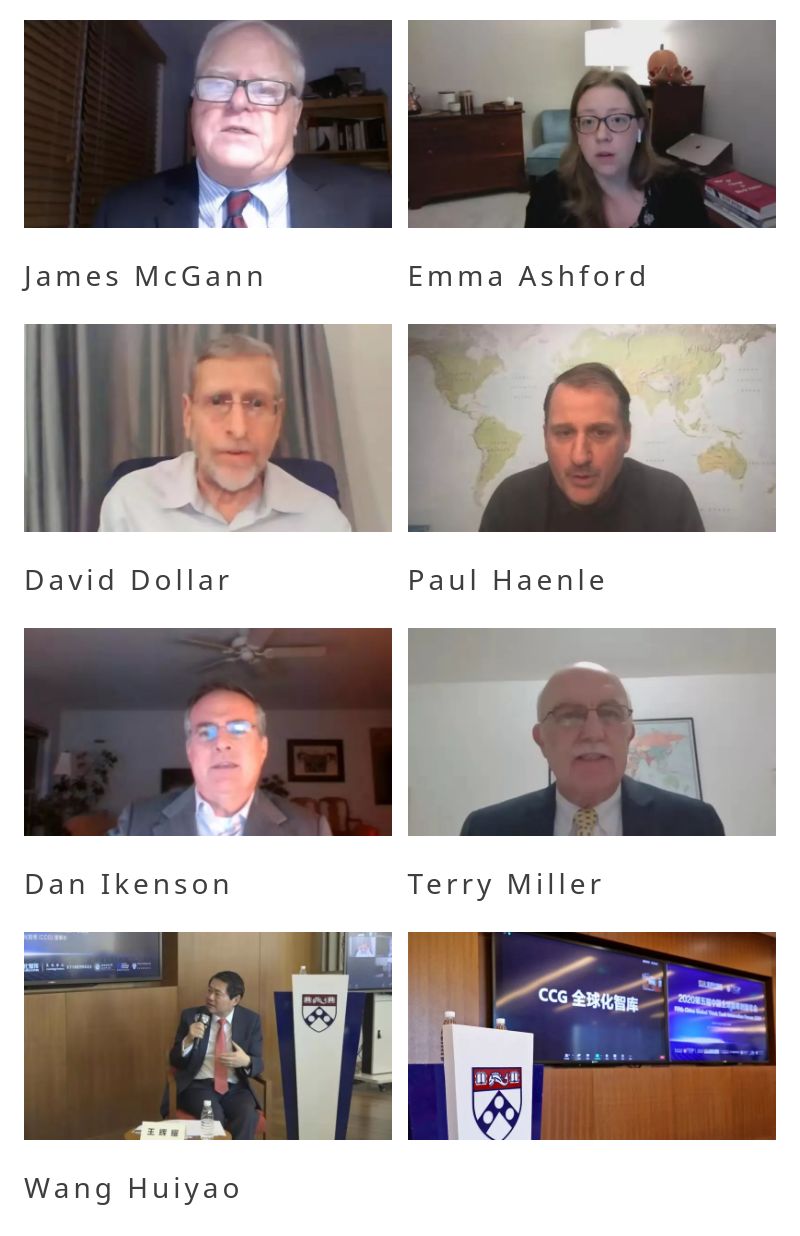
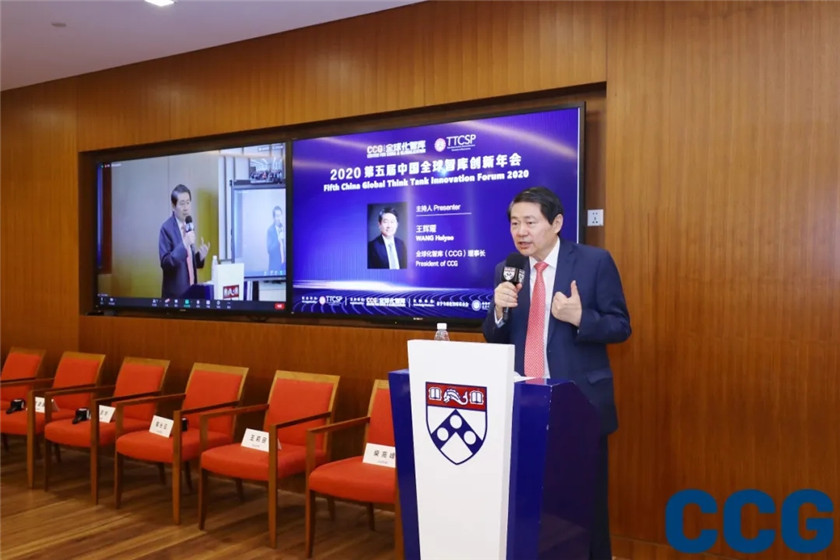
At the opening ceremony, CCG President Dr. Wang Huiyao said that now globalization is at a crossroads, with the US election over and the official transition to Biden’s team underway. This is a critical moment to discuss China’s cooperation with the world and the future of China and globalization from the perspective of think tanks.
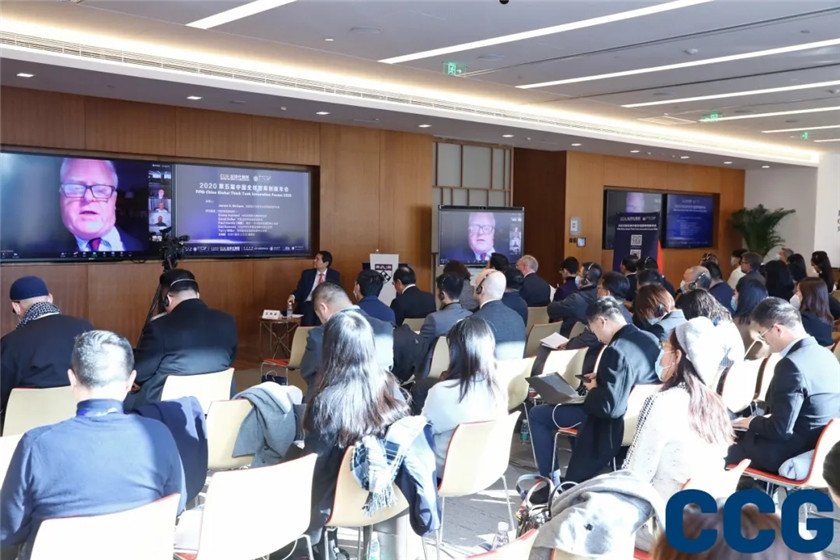
Dr. James G. McGann, director of TTCSP at the University of Pennsylvania, said in his speech that TTCSP and CCG are honored to host the fifth Annual China Think Tank Innovation Forum, which focuses on the challenges facing think tanks. McGann said that we need to face the reality that there will be no new normal, and work with partners to deal with future uncertainties. He pointed out that think tanks need to rethink their traditional operating models, and only through joint efforts to become smarter and more agile will they be able to weather the storm. McGann noted that Chinese think tanks play an important role in the world.
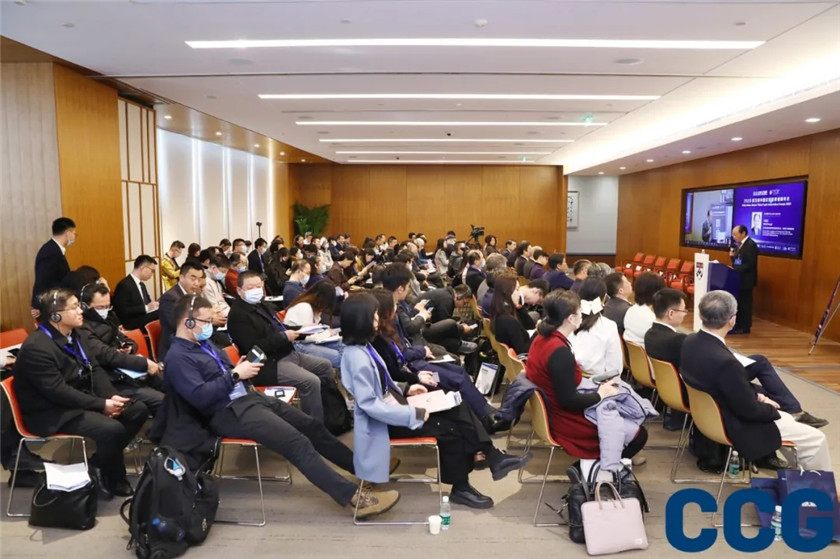

Yu Hongjun, former vice-minister of the CPC International Department and CCG advisor, and Wang Gangyi, former vice president of China International Publishing Group and senior fellow of Academy of Contemporary China and World Studies (ACCWS) delivered guest keynotes.
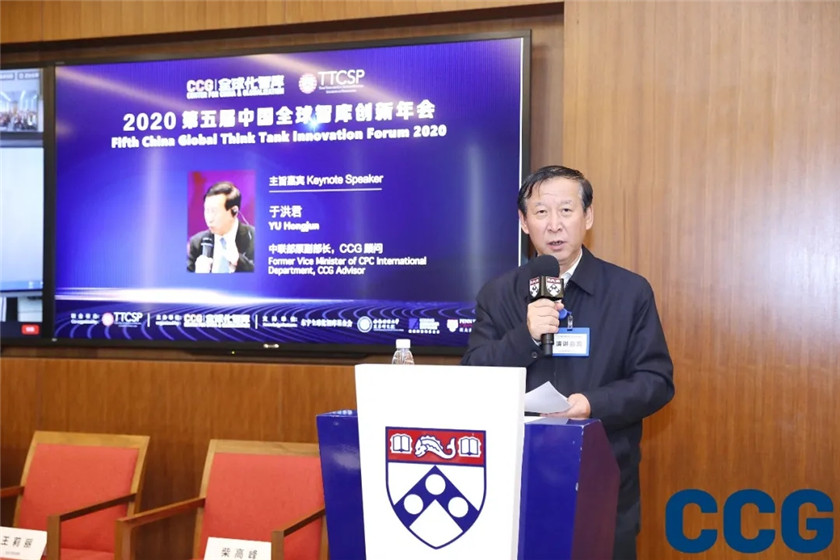
Yu said that in the first 20 years of the new century, the international power balance has shifted, with regional integration and economic globalization advancing simultaneously. He said that the world has experienced unprecedented changes, developments and adjustments. Yu said that a new world order based on common rules, with better policy coordination, multilateral mechanisms, and coexistence and integration as goals requires communication, and cooperation to transcend differences in values, social systems, disparities in social development levels, and disputes over global governance. Yu suggested that we need to seek common ground while accommodating differences to ease confrontation, manage crises, and prevent conflict. Moreover, we need to shoulder joint responsibility. He also mentioned that China and the US need to take new responsible measures and make contributions in line with the common expectations of human society.

Wang said that both the Chinese and the US experience needs to be shared across borders, which is vital for the success of the two countries. He pointed out that academic exchanges are in the common interests of both countries and can provide areas where improvements are easier to achieve. He suggested that we need people from both countries to have empathy for each other, which can help deepen mutual understanding between the two cultures and help the two countries to work together.
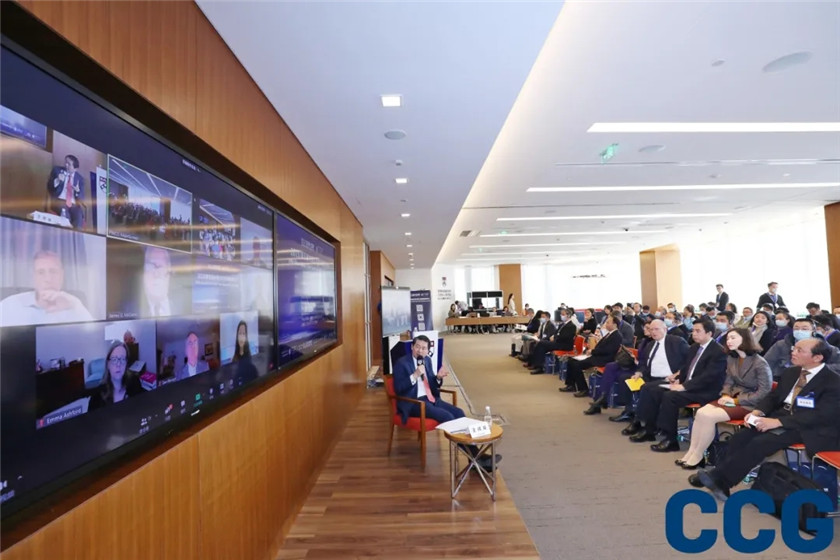
Think tank experts and scholars from many countries had a lively discussion on the various topics of the sub-forums. The opening panel was moderated by James G. McGann with the theme of “Global Think Tank in the Biden Era: Opportunities and Challenges.”Panelists included Emma Ashford, resident senior fellow of Atlantic Council; David Dollar, senior fellow of Brookings Institution; Paul Haenle, director of Carneigie-Tshinghua Center for Global Policy; Dan Ikenson, director of the Center for Trade Policy Studies, CATO Institute; Terry Miller, director of the Center for International Trade and Economics, Heritage Foundation; and Wang Huiyao, president of CCG. They discussed how global think tanks, playing an important role in reshaping globalization in the post-COVID world, can conduct policy-oriented research, offer policy recommendations for policy makers, provide the public with information, and inform their opinions.
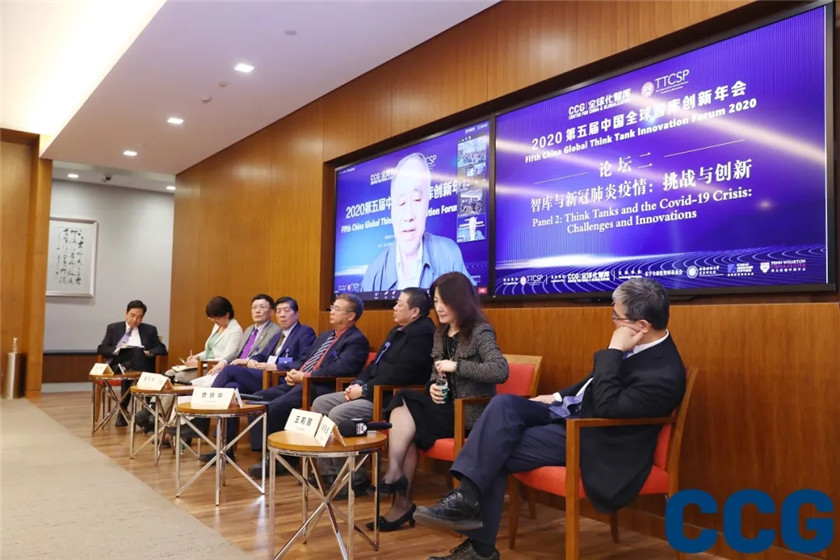
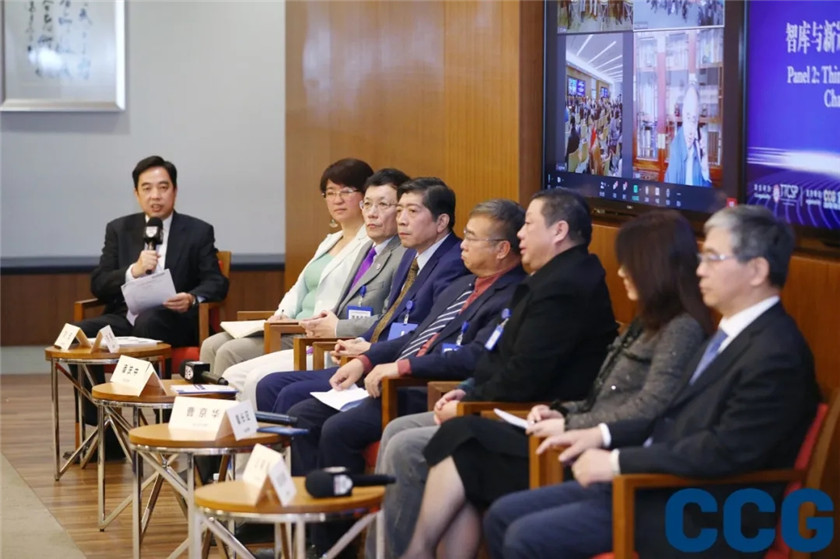
The theme of panel two was “Think Tanks and the COVID-19 Crisis: Challenges and Innovations,” moderated by Mike Liu, vice president and senior fellow of CCG. Panelists included Cao Jinghua, executive director of the Secretariat of the Alliance of International Science Organizations (ANSO) and former director-general of the Bureau of International Cooperation (BIC), the Chinese Academy of Sciences (CAS); Chai Gaofeng, vice president of State Grid Energy Research Institute; Dai Changzheng, dean of the School of International Relations, University of International Business and Economics; Fang Li, director of World Resources Institute (WRI) Beijing Office; Huo Jianguo, former director of Chinese Academy of International Trade and Economic Cooperation (CAITEC) and CCG senior fellow; David Pan, executive dean and professor of Schwarzman College, Tsinghua University; Wang Lili, deputy dean of National Academy of Development and Strategy at Renmin University of China; and Zhang Yunling, member of Presidium of Academic Divisions of Chinese Academy of Social Sciences (CASS) and director of International Studies at CASS (online). They discussed how to promote innovation-based exchange and communication between think tanks from diverse cultural backgrounds under COVID-19 and generate future opportunities for think tanks to meet current challenges.
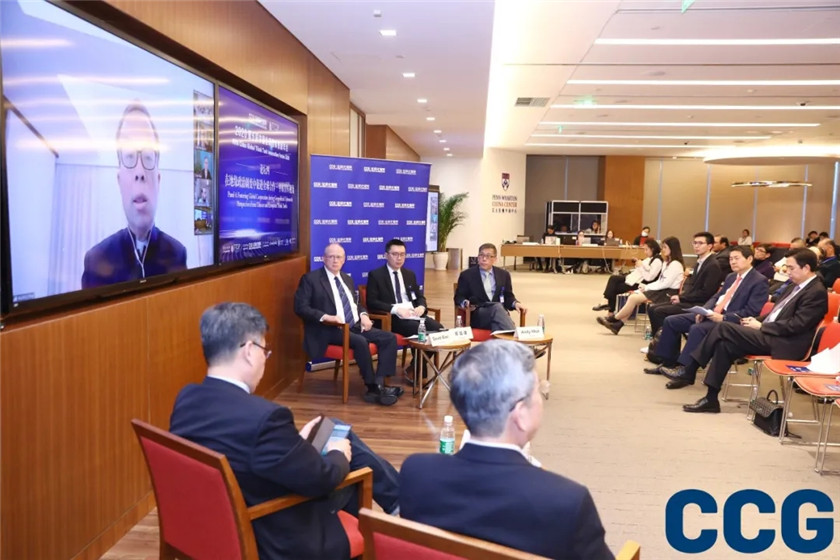
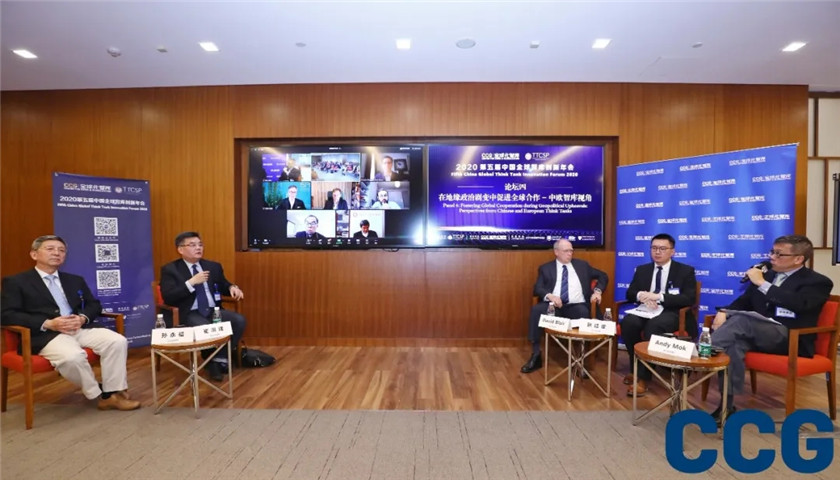
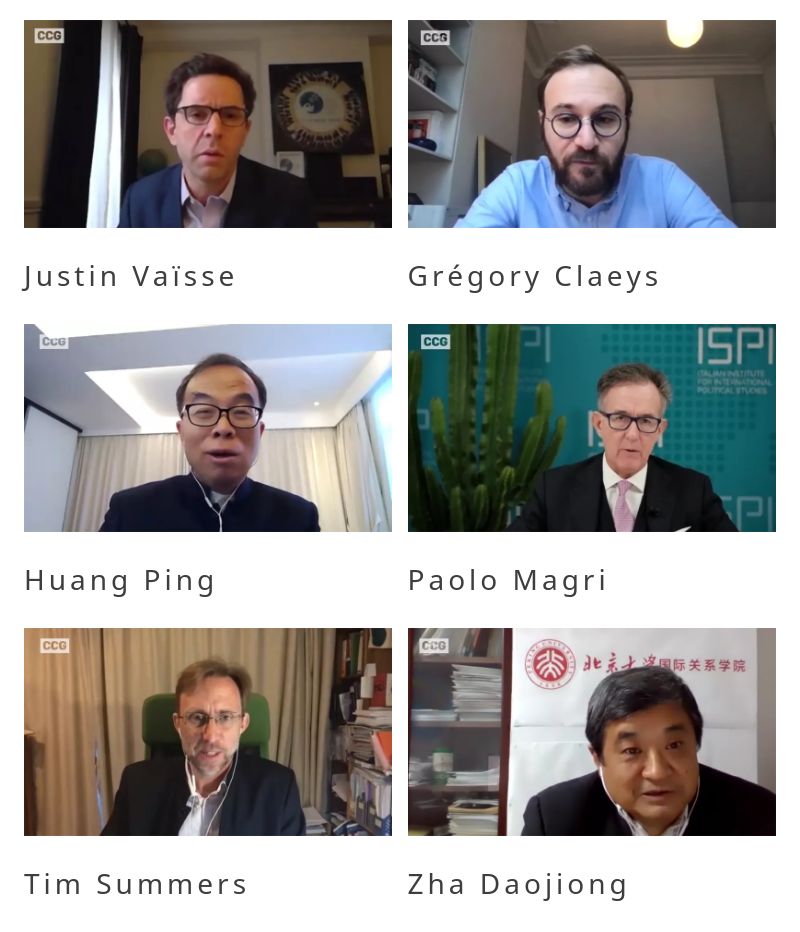
Panel three’s theme was “Fostering Global Cooperation during Geopolitical Upheavals: Perspectives from Chinese and European Think Tanks.” Moderated by Andy Mok, CCG senior fellow and CGTN commentator for Business and Technology , participant included David Blair, vice president and senior economist of Center for China and Globalization (CCG); Cai Tingjian, senior manager of Konrad-Adenauer-Stiftung Beijing Office; Justin Vaïsse, director-general of the Paris Peace Forum(online); Grégory Claeys, senior fellow of Bruegel (online); Cui Hongjian, senior research fellow and director of the Department of European Studies, China Institute of International Studies (CIIS) and CCG non-resident senior fellow; Huang Ping, senior researcher at the Institute of Contemporary China and the World and former director of the Research Center for Europe at the Chinese Academy of Social Sciences (online); Paolo Magri, executive vice president ISPI and Chair T20 Italy (online); Tim Summers, senior consulting fellow of the Asia-Pacific Programme, the Royal Institute of International Affairs (Chatham House) (online); Sun Yongfu, CCG senior fellow and former director-general of the Department of European Affairs, MOFCOM; Zha Daojiong, member of Academic Committee at the Institute of International and Strategic Studies, Peking University and CCG senior fellow (online). They discussed the impact of COVID-19 on geopolitical structures in the world and ways for China, Europe, the US and other regions to build better relationships.
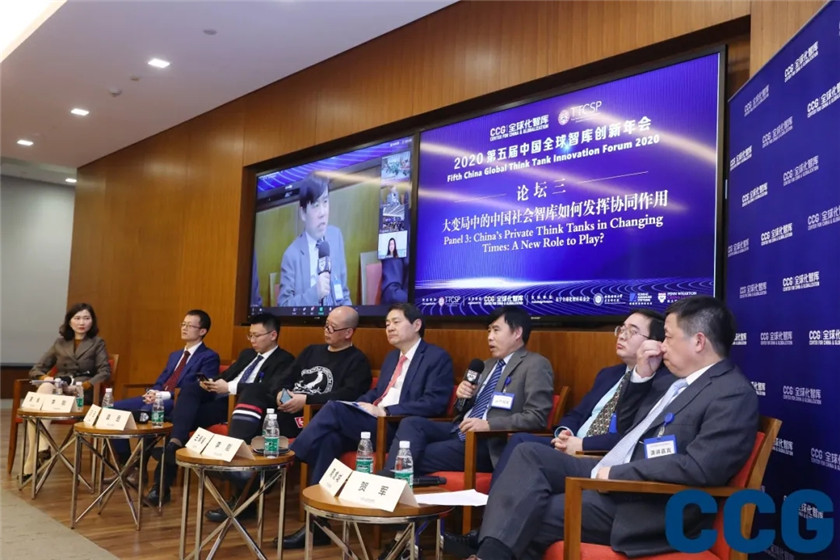
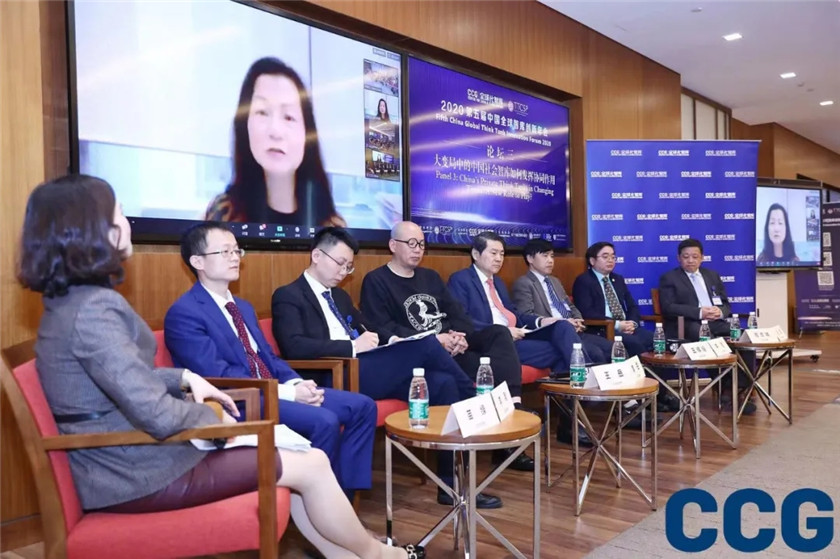
Panel four, “China’s Nongovernmental Think Tanks in Changing Times: A New Role to Play?” was moderated by Mabel Miao, co-founder, vice president and secretary-general of CCG. Panelists included He Jun, Director of Macro Research, ANBOUND; Li Gang, director of the Center for Chinese Think Tank Research and Assessment, Nanjing University; Li Gang, vice president of Tencent Research Institute; Angela Mo, Head of Community Engagement, Our Hong Kong Foundation (online); Wang Huiyao, president of Center for China and Globalization (CCG); Xin Wang, president of China Manufacturing Think Tank; Wang Yue, executive secretary-general of Pangoal Institution; Yuan Yue, Chairman of Dataway Horizon; Zhou Hucheng, executive deputy secretary-general of Charhar Institute. They discussed how private think tanks can adapt to new roles in the new environment given the complex and changing situation in China and abroad, and how to combine the advantages of research fields to address opportunities and challenges in a changeable era.
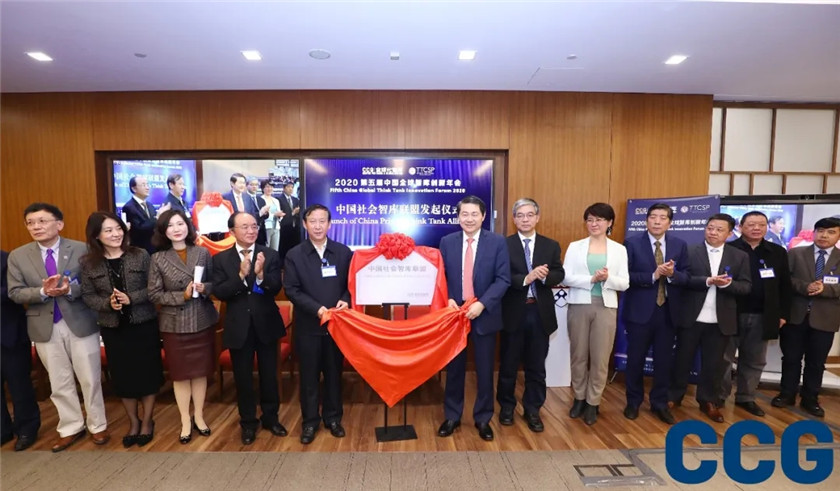
The forum also held the launch of the Private Think Tank Alliance, followed by the introduction of the alliance by Dr. Mabel Miao, vice president and secretary-general of CCG. The alliance aims to build a platform to promote exchange, cooperation and collaboration among private think tanks, to leverage the role of think tanks in track II diplomacy and policy recommendations, and contribute to the prosperity of China’s policy market.
The witnesses of the launch included Yu Hongjun, former vice minister of CPC International Department and CCG advisor; Wang Gangyi, former vice president of China International Publishing Group and senior fellow of Academy of Contemporary China and World Studies (ACCWS); Wang Huiyao, president of Center for China and Globalization (CCG); Chai Gaofeng, vice president of State Grid Energy Research Institute; Chen Caiyin, member of policy research institute of Bilibili; Dai Changzheng, dean and professor at the School of International Relations at the University of International Business and Economics; Fang Li, director of World Resources Institute (WRI) Beijing Office; general secretary of Intellisia Institute in Beijing; He Jun, Director of Macro Research, ANBOUND; Huo Jianguo, former director of Chinese Academy of International Trade and Economic Cooperation (CAITEC); Li Gang, director of the Center for Chinese Think Tank Research and Assessment, Nanjing University and deputy editor of Think Tank: Theory & Practice; Li Gang, vice president of Tencent Research Institute; Sun Yongfu, former director-general of the Department of European Affairs; Ouyang Zhenyuan, dean of the King & Wood Law Institute; David Pan, executive dean and professor of Schwarzman College, Tsinghua University; Wang Lili, deputy dean of National Academy of Development and Strategy at Renmin University of China; Wang Yue, executive secretary-general of the Pangoal Institution; Xie Liangbing, deputy president of the research institute of China Manufacturing Think Tank; Xing Naigui, director of the Education and Sustainable Development Think Tank ; Yuan Yue, Chairman of Dataway Horizon; Zhang Yunling, member of Presidium of Academic Divisions of Chinese Academy of Social Sciences (CASS) and director of International Studies at CASS; Zhou Hucheng, executive deputy secretary general of Charhar Institute.
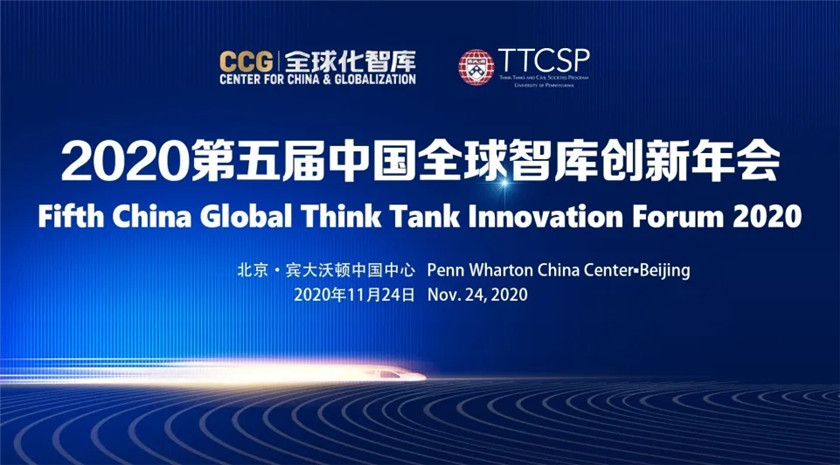
As a global think tank forum held in China, the Annual China Global Think Tank Innovation Forum has been successfully held for four consecutive years. Dozens of countries, international organizations, hundreds of think tanks and representatives from Chinese and overseas research institutions and organizations in the fields of strategy, economics and business have participated in the past events. The forum focuses on the challenges and responses of global think tanks amidst new changes, aiming to help global think tanks innovate and strengthen cooperation.
The fifth Annual China Think Tank Innovation Forum was supported by Dongyu Globalization Think Tank Foundation, the Development Research Institute of the Southwestern University of Finance and Economics, Konrad Adenauer Foundation (KAS); and Penn Wharton China Center (PWCC).






